Sleep Apnea Treatment in Aventura, Pembroke Pines, and Fort Lauderdale, FL
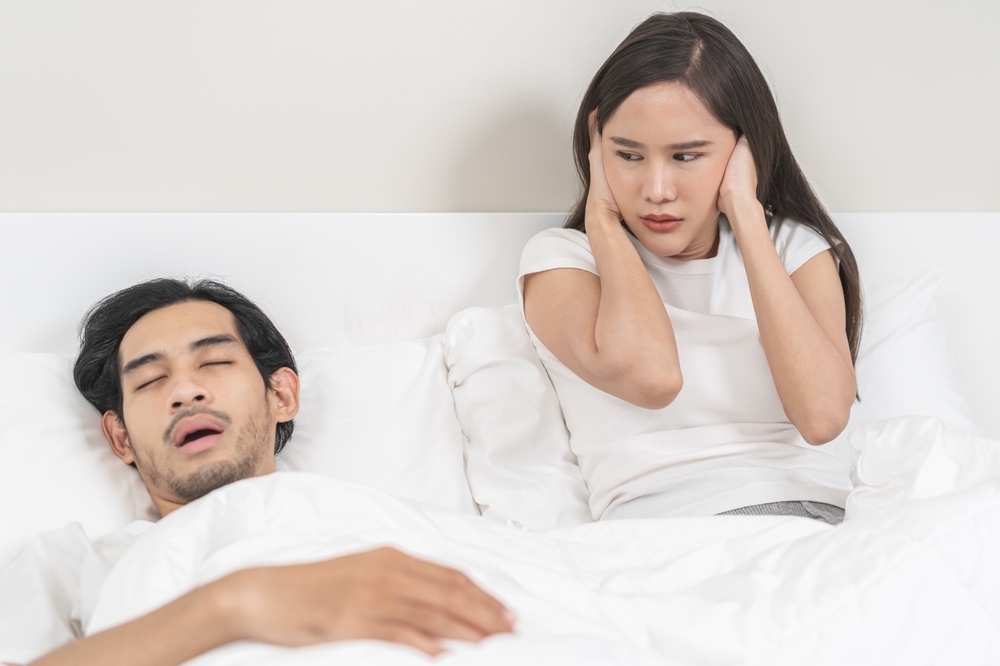
Restoring Sleep and Restoring Health
Sleep apneais a common sleep disorder that affects millions of people worldwide. If you wake up each morning tired and unrested, it may be a sign of sleep apnea. Luckily, you don’t have to continue to live with this disorder. The Dental Care Group offers effective sleep apnea treatment, ensuring you get the sleep you need.
With over 50 years of experience serving South Florida families, our team has helped countless patients overcome the challenges of sleep apnea and reclaim the restful, rejuvenating sleep they deserve. We understand the profound impact that sleep apnea can have on every aspect of your life, and we’re here to provide compassionate, comprehensive care.
If you suspect you or a loved one may be suffering from sleep apnea, seek professional care. Schedule your appointment today with our dentists in Aventura, Pembroke Pines, or Fort Lauderdaleby calling 305-935-2797(Aventura), 954-430-2300(Pembroke Pines), or 954-963-3706(Fort Lauderdale).
Patient Stories: Gentle Care That Builds Lifelong Trust
Our patients aren’t just visitors—they’re family, as evidenced by stories spanning over three decades.
Andie Hallshares, “A pleasure as always. I have been a patient for the past 30 plus years with no regrets, never a dull moment, service has been outstanding.”
Yesenia Ruizhighlights our consistent excellence: “Myself and my family have been with this dental group for over 10 years. The care they show and give to their patients is excellent.”
These testimonials reflect our dedication to personalized, compassionate dentistry, from routine cleanings to advanced restorative work. Whether you’re overcoming dental anxiety or seeking cosmetic enhancements, our warm environment ensures every visit feels supportive and empowering.
What Is Sleep Apnea?
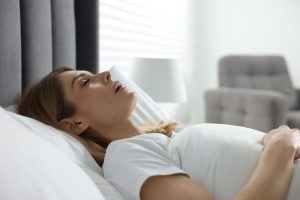 Sleep apnea is a condition characterized by interrupted breathing during sleep. It occurs when the muscles in the throat and mouth relax, causing the airway to become partially or entirely blocked. This obstruction restricts airflow, leading to breathing pauses that last for a few seconds to a few minutes. These pauses can occur multiple times throughout the night, severely impacting sleep quality.
Sleep apnea is a condition characterized by interrupted breathing during sleep. It occurs when the muscles in the throat and mouth relax, causing the airway to become partially or entirely blocked. This obstruction restricts airflow, leading to breathing pauses that last for a few seconds to a few minutes. These pauses can occur multiple times throughout the night, severely impacting sleep quality.
Each time your breathing stops, your brain briefly awakens you to reopen your airway. These micro-awakenings prevent you from reaching the deep, restorative stages of sleep your body needs to function optimally. As a result, even if you spend eight hours in bed, you may wake up feeling as though you haven’t slept at all.
Types of Sleep Apnea
There are three types of sleep apnea:
Obstructive Sleep Apnea (OSA): The most prevalent form of sleep apnea, obstructive sleep apnea occurs when the throat muscles relax excessively, causing an airway blockage. This is the type of sleep apnea we most commonly treat at The Dental Care Group.
Central Sleep Apnea (CSA): CSA is less common and involves a malfunction in the brain’s respiratory control, where the brain fails to send proper signals to the muscles responsible for breathing. Unlike OSA, CSA is not caused by a physical blockage.
Complex Sleep Apnea Syndrome (CSAS): Also known as mixed sleep apnea or treatment-emergent central sleep apnea, CSAS is a combination of both obstructive and central sleep apnea. This condition may develop when someone with OSA begins CPAP therapy.
Sleep Apnea Treatments
At The Dental Care Group, we offer a range of treatment options to effectively manage sleep apnea and TMJ disorders, as well as snoring problems, focusing on CPAP alternatives. We’ll review your options and discuss which one will be best suited to treat your sleep apnea and meet your individual needs.
But, What is CPAP?
Continuous Positive Airway Pressure (CPAP) Therapy is a widely used treatment for moderate to severe sleep apnea. It involves wearing a mask over the nose or mouth during sleep, which delivers a constant stream of pressurized air, keeping the airway open throughout the night.
CPAP therapy is highly effective and has been shown to:
- Significantly reduce or eliminate apnea events
- Improve daytime alertness and cognitive function
- Lower blood pressure
- Reduce cardiovascular risk
- Improve quality of life
While CPAP is a common treatment for severe sleep apnea, some patients find the mask uncomfortable or experience difficulty adjusting to the therapy. For these individuals, alternative sleep apnea treatments may be more appropriate.
CPAP Alternatives for Sleep Apnea
Oral Appliance Therapy
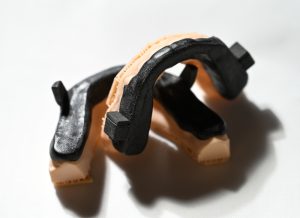 Custom-fitted oral appliances, similar to mouthguards or sports guards, can be prescribed to reposition the jaw and tongue, preventing airway obstruction during sleep. At The Dental Care Group, we specialize in creating custom oral appliances, including mandibular advancement devices(MADs), that are tailored to your mouth’s unique shape and size.
Custom-fitted oral appliances, similar to mouthguards or sports guards, can be prescribed to reposition the jaw and tongue, preventing airway obstruction during sleep. At The Dental Care Group, we specialize in creating custom oral appliances, including mandibular advancement devices(MADs), that are tailored to your mouth’s unique shape and size.
Oral appliances work by:
- Gently repositioning the lower jaw forward
- Preventing the tongue from falling back into the throat
- Keeping the airway open during sleep
Benefits of oral appliance therapy include:
- More comfortable than CPAP for many patients
- Quiet and discreet
- Easy to travel with
- No electricity required
- High compliance rates
- Effective for mild to moderate sleep apnea
Our experienced dentists partner with theFDA-approved OASYS Oral/Nasal Airway System™ to bring you this comfortable CPAP alternative. We’ll schedule follow-up appointments to ensure proper fit and make any necessary adjustments.
Lifestyle Modifications
Certain lifestyle changes can help alleviate sleep apnea symptoms and may be used alone for mild cases or in combination with other treatments. These may include:
- Maintaining a Healthy Weight: Weight loss is one of the most effective lifestyle interventions for sleep apnea. Even a modest reduction of 10% of body weight can significantly improve symptoms for overweight individuals.
- Regular Exercise: Physical activity can help with weight management, improve muscle tone, and enhance overall cardiovascular health, all of which can reduce sleep apnea severity.
- Avoiding Alcohol and Sedatives: These substances relax the throat muscles and can worsen sleep apnea. It’s best to avoid them entirely or at least refrain from consuming them within several hours of bedtime.
- Sleeping on Your Side Rather Than Your Back: Positional therapy can be effective for those whose sleep apnea is worse when sleeping on their back. Special pillows or devices can help maintain side-sleeping throughout the night.
- Quitting Smoking: Smoking increases inflammation and fluid retention in the airway, making obstruction more likely. Quitting smoking can improve sleep apnea symptoms.
- Treating Nasal Congestion: Using nasal decongestants, saline rinses, or treating underlying allergies can improve nasal breathing and reduce sleep apnea severity.
- Maintaining Good Sleep Hygiene: Establishing a consistent sleep schedule, creating a comfortable sleep environment, and following a relaxing bedtime routine can improve overall sleep quality.
Mouth and Throat Exercises
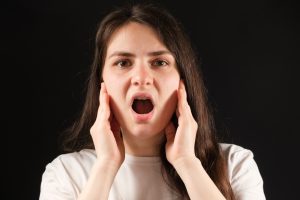 Mouth and throat exercises, also known as oropharyngeal exercises, can be a useful complement to other treatments for mild cases of obstructive sleep apnea (OSA). These exercises aim to strengthen the muscles in the mouth and throat, potentially reducing the severity of sleep apnea symptoms.
Mouth and throat exercises, also known as oropharyngeal exercises, can be a useful complement to other treatments for mild cases of obstructive sleep apnea (OSA). These exercises aim to strengthen the muscles in the mouth and throat, potentially reducing the severity of sleep apnea symptoms.
Regular practice of these exercises can:
- Improve muscle tone in the upper airway
- Reduce the likelihood of airway collapse during sleep
- Complement other treatment methods
- Be performed at home without special equipment
However, these exercises may not be a standalone solution for moderate to severe OSA and should be used as part of a comprehensive treatment plan.
Surgical Interventions
In some cases, surgical options may be considered to address anatomical issues contributing to sleep apnea. Surgery is typically reserved for severe cases where other treatments have failed or when there are specific structural abnormalities that can be corrected. These surgical procedures include:
- Uvulopalatopharyngoplasty (UPPP): Removes excess tissue from the throat to widen the airway.
- Genioglossus Advancement: Repositions the tongue muscle attachment to prevent it from collapsing into the airway.
- Mandibular Advancement Surgery: Repositions the jaw to enlarge the space behind the tongue and soft palate.
- Tonsillectomy and Adenoidectomy: Particularly effective for children with enlarged tonsils and adenoids causing sleep apnea.
- Nasal Surgery: Corrects structural problems like a deviated septum or removes nasal polyps to improve breathing.
- Tracheostomy: A last-resort procedure for severe, life-threatening sleep apnea that hasn’t responded to other treatments.
Surgery carries risks and requires careful consideration. Our team will help you understand whether surgery might be appropriate for your situation and refer you to qualified specialists if needed.
Symptoms of Sleep Apnea
Recognizing the symptoms of sleep apnea is the first step toward getting the treatment you need. Common symptoms of sleep apnea include:
- Loud Snoring: While not everyone who snores has sleep apnea, loud, persistent snoring is one of the most common symptoms, especially when accompanied by pauses or gasping sounds. Snoring prevention is a common reason people begin to seek treatment.
- Pauses in Breathing During Sleep: Often observed by a bed partner, these pauses can be alarming to witness and are a hallmark sign of sleep apnea.
- Excessive Daytime Sleepiness: Feeling overwhelmingly tired during the day, regardless of how many hours you spent in bed the night before.
- Morning Headaches: Frequent headaches upon waking, often caused by low oxygen levels during the night.
- Difficulty Concentrating: Problems with focus, memory, and cognitive function due to poor sleep quality.
- Irritability: Mood changes, increased frustration, or feeling emotionally on edge.
- Fatigue: Persistent tiredness and lack of energy throughout the day.
- Frequent Awakenings During the Night to Urinate (Nocturia): Sleep apnea can trigger hormonal changes that increase urine production at night.
- Dry Mouth or Sore Throat Upon Waking: Often caused by mouth breathing during sleep when the nasal airway is compromised.
If you’re experiencing any of these symptoms or believe you have sleep apnea, contact our Aventura, Pembroke Pines, or Fort Lauderdale dental office today to set up your consultation.
Causes of Sleep Apnea
Understanding the risk factors for sleep apnea can help you determine whether you should seek evaluation. There are various causes and risk factors for developing sleep apnea. These include:
- Gender: Men are generally at a higher risk of developing sleep apnea than women, although the risk increases for women after menopause due to hormonal changes.
- Age: Sleep apnea is more common in older adults, but it can affect people of all ages, including children. The risk increases with age as muscle tone naturally decreases.
- Family History: A family history of sleep apnea may increase your risk, suggesting a genetic component to the condition.
- Alcohol and Sedative Use: The consumption of alcohol or sedative medications can relax throat muscles, increasing the risk of airway obstruction during sleep.
- Smoking: Smokers are more likely to develop sleep apnea due to increased inflammation and fluid retention in the upper airway. Smoking can triple your risk of OSA.
- Nasal Congestion: Chronic nasal congestion, allergies, or structural problems like a deviated septum can make it difficult to breathe through the nose, increasing the likelihood of developing sleep apnea.
- Neck Circumference: People with a thicker neck circumference may have a narrower airway, making them more susceptible to OSA. A neck circumference greater than 17 inches in men or 16 inches in women indicates increased risk.
- Obesity: Excess weight, particularly around the neck and upper body, is one of the most significant risk factors for sleep apnea. Fat deposits can narrow the airway and make it more prone to collapse.
- Hormones: Hormonal changes, such as those occurring during pregnancy or polycystic ovary syndrome (PCOS), can increase the risk of sleep apnea.
- Anatomical Factors: Enlarged tonsils, a large tongue, a small jaw, or other structural abnormalities can contribute to airway obstruction.
How Is Sleep Apnea Diagnosed?
Proper diagnosis is essential for effective treatment. At The Dental Care Group, we follow a comprehensive diagnostic process to accurately identify sleep apnea and determine its severity.
Physical Examination
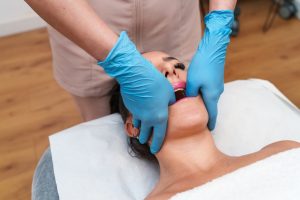 We’ll conduct a thorough examination of your mouth, throat, and neck to identify any anatomical factors that may contribute to sleep apnea, such as enlarged tonsils, a narrow airway, excess tissue in the throat, or structural abnormalities. We’ll also review your medical history, sleep patterns, and symptoms.
We’ll conduct a thorough examination of your mouth, throat, and neck to identify any anatomical factors that may contribute to sleep apnea, such as enlarged tonsils, a narrow airway, excess tissue in the throat, or structural abnormalities. We’ll also review your medical history, sleep patterns, and symptoms.
If we believe you may be suffering from sleep apnea based on our examination and your reported symptoms, we’ll refer you to a sleep specialist for a comprehensive sleep study.
Sleep Study
Polysomnography is the most common test used to diagnose sleep apnea. This overnight study involves monitoring your sleep patterns, brain activity, heart rate, oxygen levels, and other vital signs. It can be conducted in a sleep laboratory or at home using portable monitoring devices.
During a sleep study, the following are monitored:
- Breathing patterns: Including pauses, shallow breathing, and respiratory effort
- Oxygen saturation levels: To detect drops in blood oxygen
- Heart rate and rhythm: To assess cardiovascular response to apnea events
- Brain wave activity: To determine sleep stages and arousal patterns
- Body position: To see if position affects breathing
- Limb movements: To check for restless leg syndrome or other movement disorders
The sleep study results will provide detailed information about the number of breathing interruptions per hour (Apnea-Hypopnea Index or AHI), the severity of oxygen desaturation, and other important metrics.
Diagnosis and Treatment Planning
The sleep specialist will go over the results of your sleep study to determine if you have sleep apnea and assess its severity. For people diagnosed with sleep apnea, you’ll return to our Aventura, Pembroke Pines, or Fort Lauderdale dental office, where we’ll create your custom treatment plan tailored to your specific needs, preferences, and the severity of your condition.
Frequently Asked Questions
Can sleep apnea go undiagnosed?
Yes, sleep apnea often goes undiagnosed, as its symptoms can be mistaken for other conditions or overlooked as mere snoring. Many individuals may attribute their daytime fatigue, lack of energy, or morning headaches to factors unrelated to sleep apnea, such as stress, aging, or a busy lifestyle. Seeking professional evaluation is essential for avoiding undiagnosed sleep apnea and preventing its serious health consequences.
Can children develop sleep apnea?
Yes, sleep apnea can affect individuals of all ages, including children. Pediatric sleep apnea often occurs due to anatomical factors such as enlarged tonsils or adenoids, which can obstruct the airway during sleep. Children with sleep apnea may exhibit symptoms such as snoring, restless sleep, bedwetting, mouth breathing, behavioral problems, difficulty concentrating, and daytime sleepiness. If you suspect your child has sleep apnea, our Dental Care Group Kids program can provide specialized pediatric evaluation and treatment.
Are there any natural remedies for sleep apnea?
While lifestyle changes can help reduce sleep apnea symptoms, professional treatment is usually necessary for effective management. Adopting a healthy lifestyle can contribute to better sleep quality and overall well-being. Lifestyle modifications such as maintaining a healthy weight, engaging in regular exercise, avoiding alcohol and sedatives, practicing good sleep hygiene, and sleeping on your side can have a positive impact. However, these should complement, not replace, professional treatment for moderate to severe sleep apnea.
How long does it take to see results from treatment?
Many patients notice improvements in their symptoms within the first few nights of starting treatment, particularly with CPAP or oral appliance therapy. You may experience better sleep quality, reduced daytime sleepiness, and improved mood relatively quickly. However, the full health benefits, including reduced cardiovascular risk and improved metabolic function, may take several weeks to months to fully manifest. Consistency with your treatment is key to achieving optimal results.
Will my insurance cover sleep apnea treatment?
Many insurance plans cover sleep apnea diagnosis and treatment, including sleep studies, CPAP machines, and oral appliances. Coverage varies by plan and provider. Our team can help you understand your insurance benefits and work with your insurance company to maximize your coverage. We recommend contacting your insurance provider to verify your specific coverage for sleep apnea treatment.
What happens if I don't treat my sleep apnea?
Untreated sleep apnea can lead to serious health complications, including high blood pressure, heart disease, stroke, diabetes, depression, and increased risk of accidents due to daytime sleepiness. The chronic sleep deprivation and oxygen deprivation associated with untreated sleep apnea can significantly impact your quality of life and long-term health. Treatment is essential to prevent these complications and improve your overall well-being.
2797 NE 207th Street, Suite 100 Aventura, FL 33180 | (305) 935-2797
12634 Pines Blvd. Pembroke Pines, FL 33027 | (954) 430-2300
3107 Stirling Rd #108 Fort Lauderdale, FL 33027 | (954) 963-3706
Break Free from Sleep Apnea With Our Sleep Dentistry Near You
Take control of your sleep and reclaim the restful nights you deserve. It’s time to seek professional help and discover effective sleep apnea treatment options near youthat can make a significant difference in your health, energy, and quality of life.
Contact our Aventura, Pembroke Pines, or Fort Lauderdale dental team today at 305-935-2797(Aventura), 954-430-2300(Pembroke Pines), or 954-963-3706(Fort Lauderdale) to schedule an appointment. Together, we can address your sleep apnea concerns, provide personalized care, and guide you toward a healthier, more revitalized life, complete with healthy sleep.
With over 50 years of experience and state-of-the-art technology, The Dental Care Group is your trusted partner in overcoming sleep apnea and achieving the restful, rejuvenating sleep you deserve. We’re conveniently open Saturdays at all three locations, making it easier to fit your appointment into your busy schedule.

